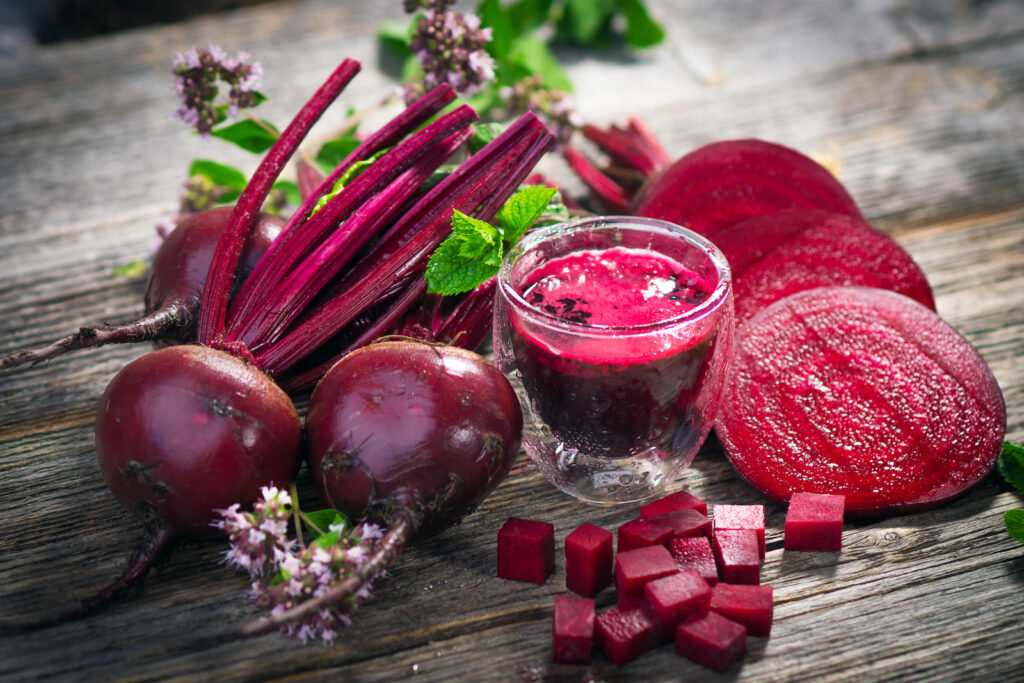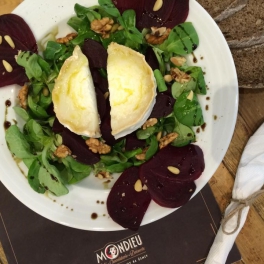When you were a kid, you probably hated beetroot as much as your mom hated the stains it was leaving. Beetroot was always served as a side dish in school cantinas, its color was pretty but taste not so much. The problem was we only ate beetroot canned in vinegar which gave it a very distinctive sour taste that literally nobody liked. As we got older and the web and magazines started releasing “healthy tips” topics, we realized beetroot is actually a pretty normal vegetable you can find in store and prepare yourself WITHOUT vinegar and make it tasty and healthy. Now we´re over this traumatic experience, it´s time to explore beetroot´s hidden secrets…
From a healthy heart to athletic performance
*Prevention of cardio-vascular diseases
As with many other healthy foods, we´re going to start about the prevention of cardio-vascular diseases. Because they are the number one killer in most countries, it is always relevant to talk about their possible solutions. Beetroot is one of those vegetables which have been proven to very effectively fight diseases just by taking in small amounts of it. A study conducted in 2008 published in a journal Hypertension tested healthy individuals drinking 500 ml of beetroot juice and found out that after ingestion, their blood pressures were lowered significantly. The researchers believe it is because of the high nitrate levels contained in beetroot which are so effective in preventing cardio-vascular diseases.
*Diabetes, cancer, and overall inflammation reduction
Another benefit we always emphasize is help for diabetics. Beetroot contains alpha-lipoic acid, an antioxidant, which lowers glucose levels and increases insulin sensitivity by which it makes diabetics´ lives easier, and is believed to prevent type 2 diabetes in individuals prone to getting it. It is a common perception in medical area that preventing any kind of inflammation will keep you from catching cold or flu, but also cancer. A substance very effective in reducing overall inflammation is choline, present in beetroot and other cruciferous vegetables like broccoli, cauliflower, or cabbage. This nutrient is also responsible for easy learning, memory, and good sleep. Many studies have been conducted on beetroot´s capability to cure cancer and most of them concluded that the phytonutrients it contains do have this property and may very well make the beetroot a valid cancer cure soon.
*Exercise, athletic performance, and weight loss
When exercising for weight-loss, increasing stamina, or actually being a professional athlete, you need to think about your nutrition sometimes even more than the exercise itself. The point is, if you´re not getting the right nutrients, you are not going to be able to perform as well as you would like to, or for as long as you would normally do. Beetroot is a great supplement to use in sports and weight-loss programs because of its nitrate content which has been found to increase oxygenation to muscles, especially during long-term endurance exercises so it keeps you going for longer and more effectively. After such a workout, you shouldn´t feel exhausted but satisfied. A study from 2011 which compared runners who drank cranberry relish to those who drank beetroot juice before a run found out that beetroot juice gave those with beetroot juice an advantage of 41 seconds. Moreover, the oxygenation increase can also help people with cardio-vascular or respiratory diseases and allergies by making the everyday activities easier thanks to an increased oxygen supply. Lastly, beetroot will help your weight-loss efforts in two ways – it will increase your stamina so you´ll be able to exercise for longer periods, thus burning more fat, and its low calorie content (43 kcal for 100g) will keep you on track.
*Be careful about side effects
Every little thing has its dark side and beetroot is not an exception. Since it has so many powerful qualities, there are also some side effects to be aware of. Many people start drinking over 500 ml of pure beetroot juice a day or eat a whole beetroot for breakfast. In such cases, it may happen that their urine turns dark red which by its resemblance to blood can be very scary. You don´t have to worry though, it´s just a coloring from the beetroot.
Another unpleasant thing that can happen is formation of kidney stones – and that´s a reason for concern. Since beetroot contains a lot of oxalates, people prone to getting this type of kidney stones (or basically anybody) should not fall for it and over-consume beetroot like it´s the only thing available. So make sure to get one or two beetroots a week and you´ll be more than healthy.
OUR TIP: Green salad with goat cheese, beetroots, and chia seeds
by Katarína Vicová
References:
Fisher, R. (2013). The health benefits of… beetroot. Retrieved from: http://www.bbcgoodfood.com/howto/guide/ingredient-focus-beetroot
Medical News Today (2015). Beetroot: Heath benefits, nutritional information. Retrieved from: http://www.medicalnewstoday.com/articles/277432.php
Real Raw Wild (2015). [picture]. Recipe – beetroot juice. Retrieved from: http://realrawwild.com.au/beetroot-juice/
WebMD (2014). Beetroot benefits. Retrieved from: http://www.webmd.boots.com/healthy-eating/guide/beetroot-benefits?page=2


